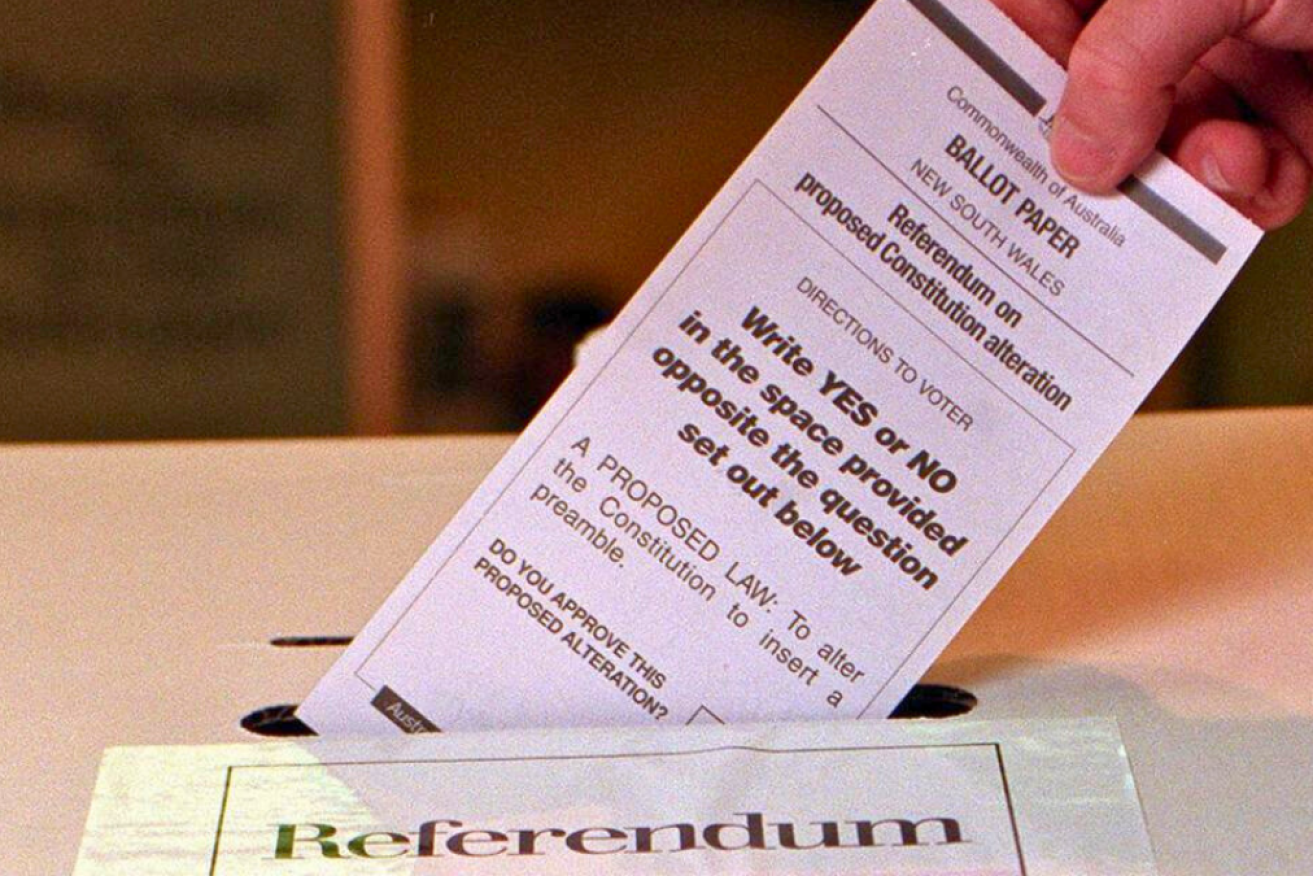‘Bonkers mad’ electoral fraud claims don’t add up


A 12-month prison term awaits people who deliberately vote more than once. Photo: Getty
Claims of electoral fraud are going viral on social media, ahead of the referendum on October 14.
Figures on the extreme right of politics have seized on a statement made by the Australian Electoral Commission (AEC) that people could theoretically mark their name off at different polling stations and cast more than one vote.
These attempts to stoke fear about the integrity of Australian elections are outrageous but also overlook the obvious.
Can people vote twice in Australian elections?
Yes.
But almost no one ever risks 12 months in prison to do it.
The AEC keeps detailed records of the number of voters suspected of casting two or more ballots at national polls, and refers suspected criminal cases to the Australian Federal Police.
More than 14,000 people were flagged as possibly having voted twice in the 1993 election (a tiny 0.1 per cent share of all votes that has declined in subsequent elections).
Were they dirty tricksters risking jail time?
After each election, investigations reach similar conclusions.
Up to half of these red flags are simple clerical errors or data entry issues.
Dazed and confused
The most commonly used labels used in the AEC’s record-keeping system paint a pretty clear picture of the bulk of the rest: Aged, confused, intoxicated, and poor comprehension.
A 2012 court challenge over a close seat in a state election conclusively unearthed three cases of voters who had cast more than one ballot.
All were residents in nursing homes.
Tweet from @SenatorRennick
Are there cases where people try to game the system?
Only rarely.
“It has happened,” Swinburne University’s Professor Brian Costar told a parliamentary committee in 2014.
“There was a gentleman in Sydney some years back who voted 17 times, and he used to do it all the time.
“He died before the AEC could prosecute him, so we never got that into the courts.”
ID checks
ID checks come when voters enrol.
Voters at pre-poll stations now use electronic rolls that update to prevent double voting.
Australian elections are vast logistical exercises.
Nationwide, AEC staff will cross more than 15 million people’s names off rolls.
The final error rate is tiny, yet unavoidable for an enterprise on this scale.
It does not come close to influencing the result in an individual electorate, let alone a national election.
The most closely fought seat at the last election, Gilmore, a squeaker on the New South Wales south coast, was won by more than 350 votes.
Whipping up public concern about the integrity of elections has had a much more decisive influence on elections worldwide.
Conspiracies proliferate
AEC boss Tom Rogers has called out “bonkers mad” conspiracies proliferating on social media about the October 14 referendum.
It maintains a public register online of this bogus information.
One enthusiastic conspiracist, United Australia Party Senator Ralph Babet called for Rogers to resign this week over double voting.
His party’s boss, Clive Palmer, who spent $100 million on a national campaign that elected only Babet, has made unsubstantiated election fraud claims for over a decade and pushed for voter ID laws.
Australia does not have such laws because they could seriously distort elections.
In the 2012 US presidential election, new voter ID laws prevented more than 750,000 voters in Pennsylvania from casting ballots, mostly poorer Black voters.
But the spread of conspiracies, public distrust and partisan denouncements of election results have created much bigger problems.
Donald Trump was earlier this year charged for attempting to reverse the outcome of the 2020 election in connection to a violent uprising led by his supporters.








